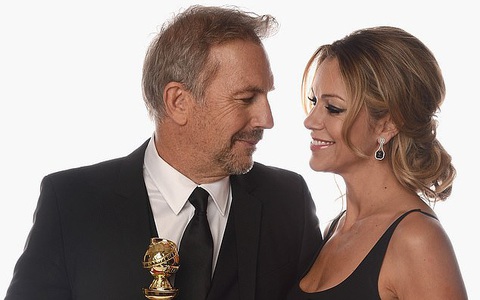
The vast, sun-drenched landscapes and moral complexities of the American West have long captivated audiences, and few actors have become as synonymous with its enduring spirit as Kevin Costner. From his early days as a fresh-faced gunslinger to his current reign as a modern-day ranching patriarch, Costner has carved out an indelible niche as Hollywood’s quintessential Western man. It isn’t merely his frequent appearances in the genre, but the memorable roles he’s embodied – each a carefully etched portrait of integrity, struggle, and connection to the land – that have cemented his legendary status.
Costner’s journey into the saddle began with a vibrant spark in Lawrence Kasdan’s 1985 ensemble Western, Silverado. As Jake, the charming but roguish younger brother of Scott Glenn’s Emmett, Costner introduced audiences to his signature blend of boyish charm and underlying steel. With his quick draw, mischievous grin, and an innate sense of justice that belied his outlaw leanings, Jake was the quintessential young hero—a man of action propelled by loyalty and a desire to set things right. He wasn’t yet burdened by the West’s greater moral dilemmas; rather, he represented its exhilarating promise and raw, untamed energy. Silverado laid the groundwork, showcasing Costner’s physical aptitude for action and his magnetic screen presence, hinting at the deeper complexities he would later explore.
But it was his ambitious, sweeping epic, 1990’s Dances With Wolves, that truly transformed Costner into a Western icon and secured his place in cinematic history. As Lieutenant John J. Dunbar, a disillusioned Civil War soldier who seeks the frontier “before it’s gone,” Costner delivered a performance of profound introspection and quiet dignity. His transformation from a solitary man haunted by war to “Dances With Wolves,” a revered member of the Lakota Sioux, was a revelation. This role allowed Costner, also as the film’s director, to challenge conventional Western tropes, presenting Indigenous people with empathy and respect. Dunbar’s profound connection to the land, his horses, and ultimately, to a culture he comes to love and protect, showcased a Western hero who was not defined by conquest or violence, but by understanding, adaptation, and a deep reverence for life. It was a role that embodied the contemplative, principled outsider, a man seeking authenticity and finding it in the heart of the wild, forever linking Costner with the genre’s capacity for myth-making and moral re-evaluation.
Years later, Costner returned to the classic Western with Open Range (2003), another directorial effort that saw him playing Boss Spearman, a grizzled, principled open-range cattleman. Here, Costner presented a different facet of the Western man: older, wearier, and reluctantly drawn into violence, but still driven by an unshakeable moral code and fierce loyalty to his chosen family. Boss Spearman is a man who has lived a hard life, seeking only peace, but when confronted with injustice, he rises with a quiet, devastating fury. His gunfight at the end of the film is not a celebration of heroics but a stark, brutal necessity, revealing the true, often grim, cost of frontier justice. This role illustrated Costner’s evolution, portraying a Western figure whose wisdom came from experience, whose strength was forged in hardship, and whose principles were unyielding even as the world around him changed. He was the protector, the guardian of a fading way of life, and the embodiment of stoic resolve.
Most recently, Costner has redefined the modern Western man for a new generation as John Dutton in Taylor Sheridan’s acclaimed television series, Yellowstone. Dutton is not a man riding into the sunset, but one fiercely defending his sprawling Montana ranch against the relentless pressures of land developers, reservation politics, and his own family’s fraught dynamics. As the powerful, often morally compromised patriarch, Costner’s Dutton embodies the fight to preserve tradition and land in a rapidly changing world. His portrayal is a masterclass in gruff authority, underlying vulnerability, and unwavering resolve. He is the Western man updated – still connected to horses and vast open spaces, still willing to fight dirty to protect what’s his, but now navigating the complexities of modern law, business, and family legacy. This role has solidified Costner’s status, proving that his unique brand of rugged individualism, quiet strength, and profound connection to the land remains as compelling as ever, regardless of the century.
Kevin Costner’s legacy as a true Hollywood Western man is not accidental; it is the culmination of carefully chosen roles that collectively paint a comprehensive portrait of the genre’s enduring appeal. From the youthful swagger of Jake to the spiritual awakening of John Dunbar, the weathered integrity of Boss Spearman, and the embattled power of John Dutton, Costner has consistently brought an authenticity, a stoic grace, and a deep understanding of the Western ethos to the screen. He doesn’t just play Western characters; he embodies the very spirit of the West – its grandeur, its challenges, and its timeless tales of men and women forged by the vast, untamed American frontier. His roles are not merely memorable; they are monuments to the enduring power of the Hollywood Western, with Kevin Costner standing tall as its most compelling and consistent hero.
